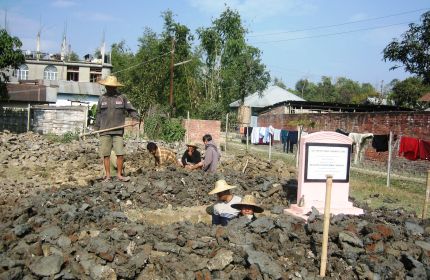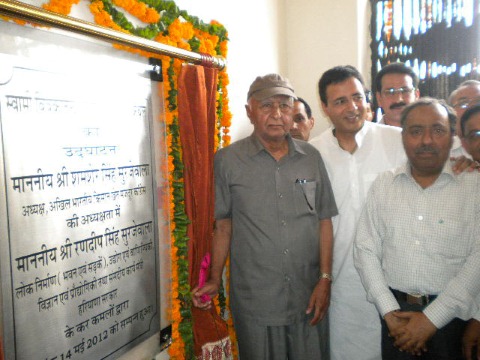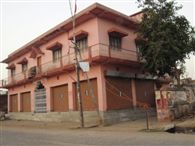By Christine Sheehy
There was a time when I would have been embarrassed to admit that I love libraries.
 A love of libraries has inspired a new book about the importance of the public place.
A love of libraries has inspired a new book about the importance of the public place.
As a teenager the library was distinctly uncool, except as a place to check out members of the opposite sex while pretending to study for School Certificate. At least, that was the only socially acceptable excuse.
But deep down I loved the place: from childhood days of Margaret Mahy and Richard Scarry, to pre-teen years when "I have a project to research" was the only excuse capable of persuading Mum that I should be allowed to get off the school bus in Takapuna and hang out by myself for a precious hour or two. I still recall the burgeoning sense of independence and freedom. And believe it or not, most of the time I did actually go to the library.
These days I take my kids to the library most weeks, and usually come away with something for myself. There's almost always a book on the "new release" stand calling out "borrow me", even though I already have far too many on my bedside table.
Now, a love of libraries has inspired The Library Book, a collection of musings on the importance and meaning of public libraries from writers including Zadie Smith, Julian Barnes, Kate Mosse and Alan Bennett.
The book was first published in the UK, where the future of tiny village and suburban libraries is in peril. It's a similar story in the US, where huge public spending cuts threaten the survival of libraries from New York to California.Many write that they would not have become writers, but for the sanctuary and inspiration offered by their local library during difficult teenage years.
In both countries, vigorous campaigns are underway to save public libraries. For one week last year, the shelves of the Stony Stratford library in Buckinghamshire stood empty of all 16,000 titles, after a Facebook campaign encouraged members to borrow their maximum 15 books. The protesters wanted to demonstrate the great void that would be left in the heart of the community if the library were shut down.
Here in New Zealand, proposed reductions in library services also face strong community opposition. A recent petition opposing the axing of Tauranga's mobile library service has gained over 1500 signatures, while last October, Hamilton City Council was forced to back down from aproposal to charge $2 per book borrowed.
The Library Book is a tribute to and celebration of that place in the community. "There really aren't many things in life that can enrich you for free yet ask for nothing in return," writes Nicky Wire, bass player and lyricist for the Manic Street Preachers.
Stephen Fry writes movingly of how discovering his library helped him to understand and accept his homosexuality. It also led him to many great writers, with a side-effect that his own appetite for knowledge caused him to "educate myself to a degree that was beyond anything a school could hope to achieve".
Others note that without well-funded libraries willing to take a chance on new writers, many would never see their work in print. As Lionel Shriver points out, a lot of books would simply disappear from sight within weeks of publication if not acquired by libraries.
There are tales of pointless bureaucracy, formative meetings, a mobile service that became a vehicle for illicit affairs and even a mobility scooter ram-raid. Whoever said the library was boring?
Not me, obviously. I think even I would be surprised by a print-out of my complete borrowing history over the last 30-something years. I've borrowed books on Baltic politics, Steiner education, Rita Angus, macro-biotic cooking, the AIDS crisis, Mary Queen of Scots, round-the-world sailing, meditation, architecture, crochet and all manner of cookbooks and health and fitness fads. And those are just the topics I can remember.
It's an odd mix, but I'm a firm believer that such eclectic reading has the capacity to expand our minds and enrich our lives. One of the bonuses of Auckland's transition to a supercity is that the library catalogues have merged. Auckland readers can now request books from any branch be delivered to their local library at no cost. Books zooming everywhere from Wellsford to Waitakere to Waiuku probably creates all sorts of inefficiencies, but with 3.5 million items on offer, the available range has expanded enormously.
So I write this blog in celebration of the public library, but I couldn't put it better than broadcaster and writer Catlin Moran. "A library in the middle of a community is a cross between an emergency exit, a life raft and a festival. They are cathedrals of the mind; hospitals of the soul; theme parks of the imagination. On a cold and rainy island, they are the only sheltered public spaces where you are not a consumer, but a citizen instead. A human with a brain and a heart and a desire to be uplifted, rather than a customer with a credit card and an inchoate 'need' for 'stuff'."





![[LIBRARY1]](http://si.wsj.net/public/resources/images/NY-BQ642_LIBRAR_G_20120515215053.jpg)





